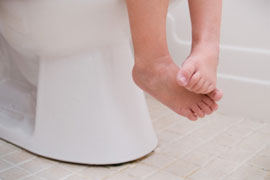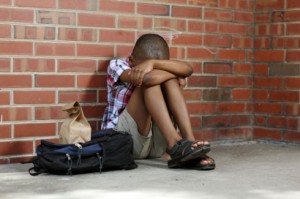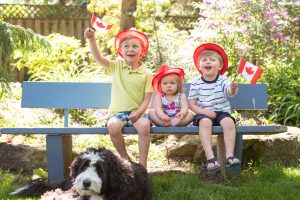Potty Training Primer

You hear stories of people potty training their children by age 9, 10, 11 or 12 months. Really? At those tender ages, I suspect it not the child who is potty trained, but rather the parents.
A potty trained parent is a parent who has learned to notice their child’s body language and run to put a potty under them and ‘catch a pee’. I don’t see the point of that, myself. My definition of a potty trained child is a child who has the ability to recognize when they need to ‘go’, the sphincter strength and control to ‘hold’ until they can get to the toilet, the manual dexterity to unzip, unbuckle, strip down and actually ‘go’ independently; and then to wipe up, wash hands, and return to what they were doing. Amazing right?
So there are a lot of skills, physical maturation and psychological readiness required. It will take some time. On average, most children start training somewhere in the beginning of their second year and finish sometime by the end of the third year. Girls usually train before boys, and the order tends to be day dryness, day BM’s, night BM’s and finally night dryness which may not be accomplished until the child is age 6, 7 or 8. (Heredity is a factor here.)
So with that in mind, rather than trying to get your 18 month-old to use the potty to make a pee and getting into a fight, which will invite resistance and slow your efforts down, let me suggest the things we can be doing to help set the ground work for later successful training. To reduce confusion, let’s not call it ‘Potty Training’. Instead, let’s say we’re helping establish ‘Potty Readiness’. Sound good?
From about 18 months, you can work on this list of activities with your child;
- Buy a potty! Have your child pick one out for themselves and leave it in the play room to ‘play with’ for now.
- Find fun children’s potty training story books to read to your child.
- Play with the potty by putting a dolly on it, wiping dolly, and talk about using the potty for peeing and pooing.
- They may sit on the potty with their pants on, they may even play by pulling their pants down and sitting—but consider this play.
- Allow your child to go in the washroom when you go, so they see adults and others carrying on these toileting activities.
- Teach them to dress themselves. Show them how to pull down their pants and how to pull them back up independently. It’s harder than it looks! Let them practice. Be patient. Cheer them on as they work at it.
- Teach them how to wash their hands at the sink. They need to learn to get up on a step stool, turn the taps on (careful about the temperature—test for hot water!) use the soap pump, and wash for a minimum of 10 seconds (try singing the alphabet song—that’ll get you to 30 seconds).
- If they show any awareness of peeing or pooing in their diaper, say “You really know you body! You know it’s making a pee/poo”. Continue to show excitement when they make mention of these body functions.
Stay positive! Stay light hearted.














